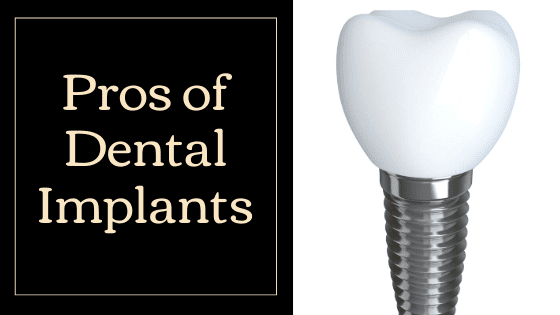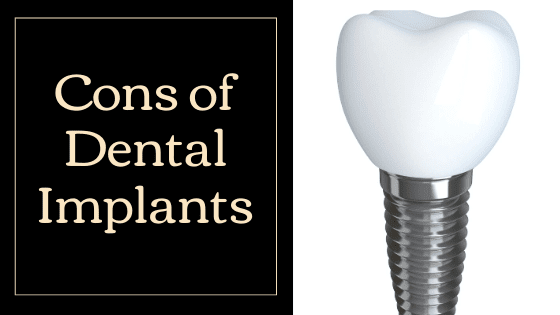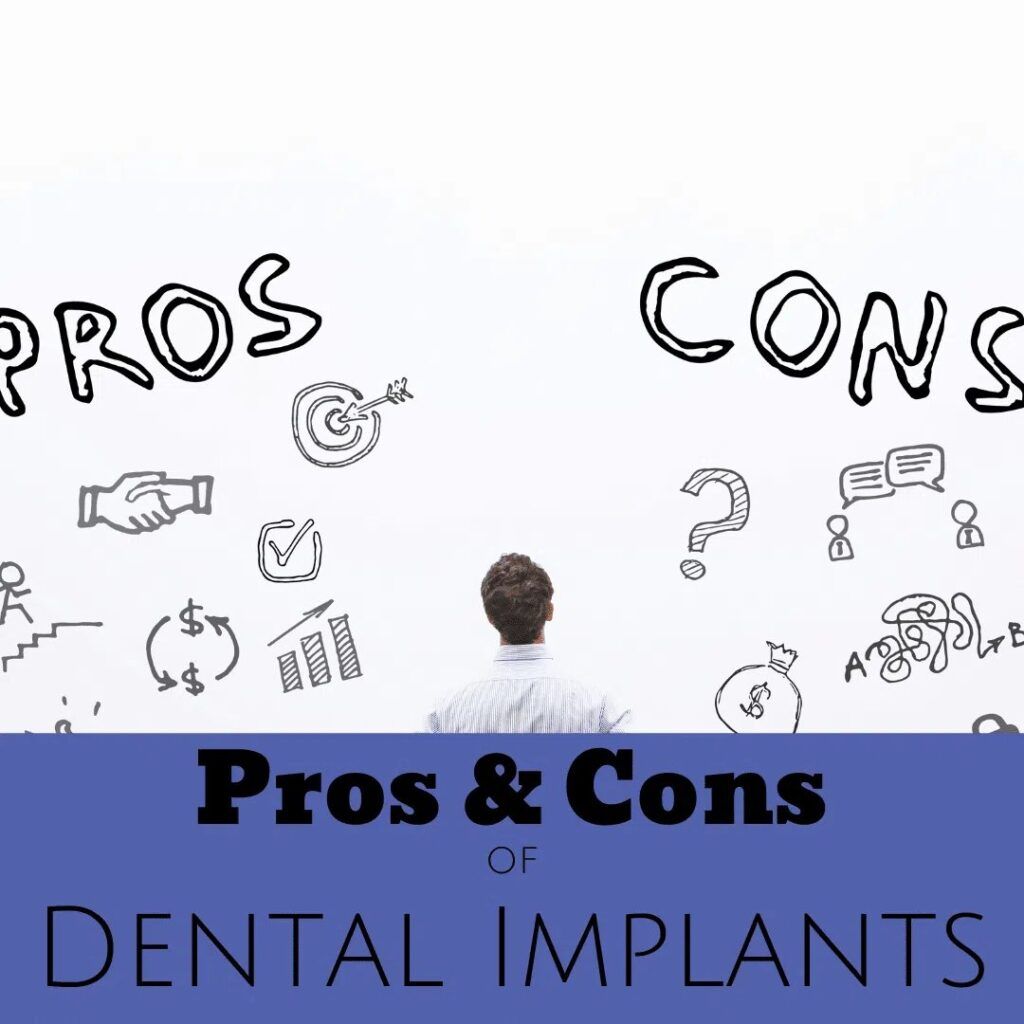Although dental implants are one of the most popular choices for replacing missing teeth, they still have pros and cons just like any other restorative dental treatment. Being aware of these pros and cons, as well as considering how they affect your case specifically, is key to determining whether or not dental implants are the right choice for you. By knowing the various pros and cons of dental implants, you can discuss these things with your implant dentist during your implant consultation. Here are some of the top pros and cons of dental implants:

Mimics Natural Teeth
While all restoration methods are designed to mimic natural teeth, the structure, function, and appearance of dental implants are the closest to those of natural teeth. For starters, the dental implant structure allows implants to act as artificial tooth roots that fuse with the jawbone. This allows them to restore almost all natural chewing and biting abilities, and also gives a natural appearance once a prosthetic has been attached.
Prevents Bone Loss
Another main benefit of dental implants is that they prevent the loss of bone mass associated with missing teeth. This is because the implant provides the same type of jawbone stimulation as natural tooth roots. This stimulation is necessary to maintain bone mass and without it, the bone is absorbed back into the body and distributed elsewhere. This is known as bone resorption and it can cause the facial bone structure to change shape over time. Additionally, bone loss can also cause any remaining natural teeth to become loose and fall out.
Long-Lasting
Dental implants are also extremely long-lasting. On average, dental implants can last about 10-15 years, however more and more implants are lasting up to 20 years. In most cases, the implant screw is permanent once fused with the jawbone. This means that oftentimes it is only the abutment and the prosthetic that requires replacement, meaning that no additional oral surgery should be required.

Requires Oral Surgery
When it comes to having dental implants placed, many people lament over the fact that it requires oral surgery. While oral surgery is needed to place the implant into the jawbone, the implant placement surgery is considered a minor surgery that can be performed in your dentist’s office. The entire procedure is relatively quick, and due to modern dental techniques, you will not feel any anxiety or pain during the procedure.
Requires Recovery Period
Since dental implants require a minor oral surgery, they also require a recovery period. The recovery period can vary depending on how your body responds to the procedure. On average, you can expect that it takes approximately 3-6 months to fully recover from dental implant surgery. This is because your implant will need to fuse with the surrounding bone before it is considered healed. This fusion is what gives implants their strength and allows them to support a dental prosthetic. To prevent implant failure, it is important to follow any guidelines provided by your dentist, including temporary dietary restrictions.
High Upfront Cost
Finally, one main concern many people share regarding dental implants is the higher upfront cost. Yes, dental implants do tend to run more expensive than other types of restoration methods. However, most people with dental implants feel that the investment pays off itself in a few years. Additionally, dental implants rarely need to be replaced or repaired, meaning that they have less costs for maintenance than other restorative methods. Although you may spend more money upfront, it is very possible that you would actually save money over time.

